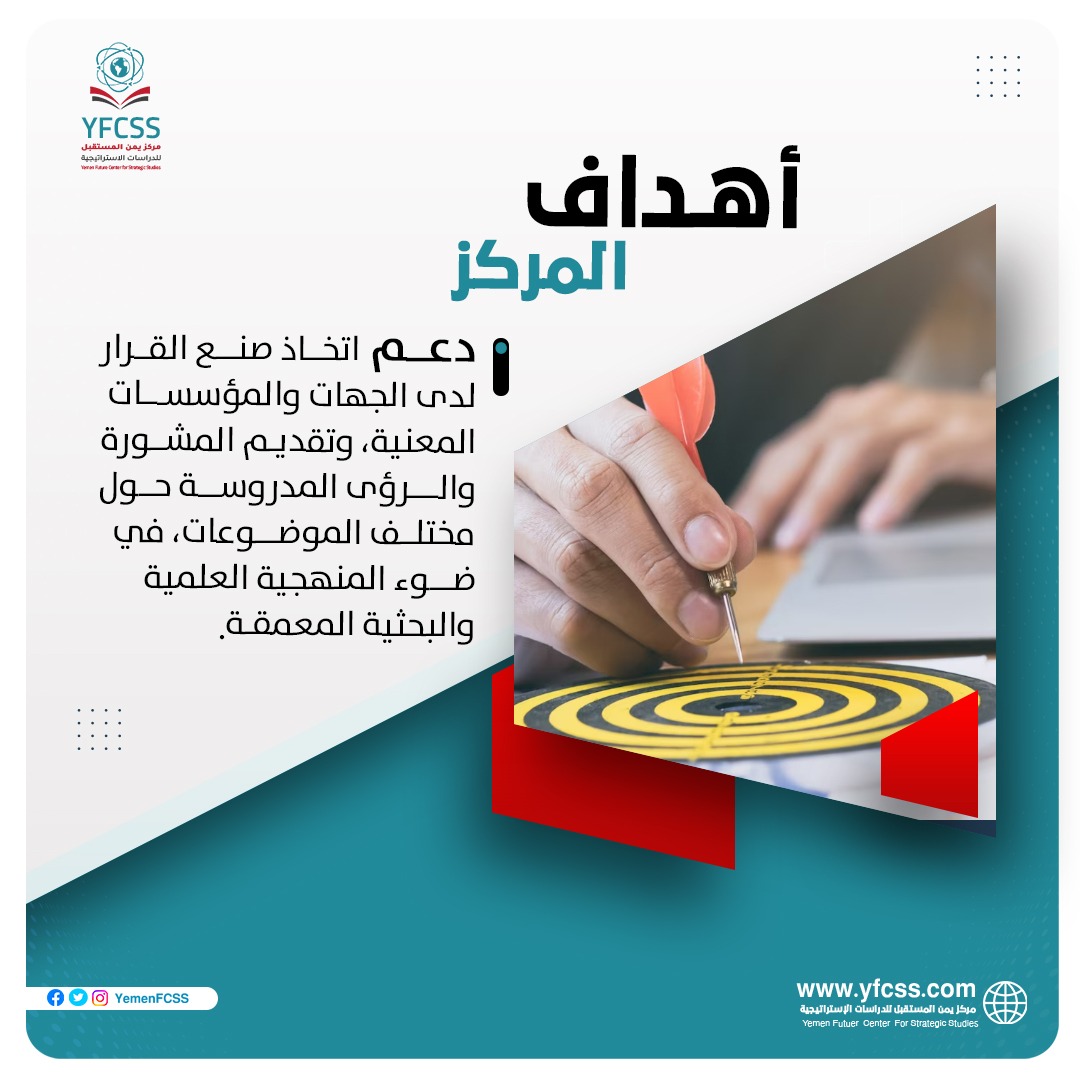
* Khaled Al-Yamani
Former Yemeni Foreign Minister
By the end of this year, Yemen will enter the second decade of its existential crisis, while the fragmentation of the state and the collapse of even the simplest values and components of life continue.
I carried this picture with me during my visit to Saudi Arabia, the capital of the Arab decision, the center of the Ligation and unscrewing in the Yemeni crisis and all regional crises, and I also carried with me readings from the Yemeni scene in America and the troubled approach of President Biden's administration to the Yemeni crisis, which finally exploded in his face as a result of Israel's brutal invasion of Gaza, at a critical time months away from the presidential elections.
Those familiar with the Yemeni issue are aware of the number of conflicting messages that have come out of Washington over the past years, the latest of which is the approach to dealing with the Houthi adventures in the Red Sea and the Gulf of Aden, which expands as intended by the Houthi Masters in Tehran, to extend, according to the leaders of the "Revolutionary Guards" in their media statements to include the closure of the Strait of Gibraltar and targeting large parts of the Indian Ocean.
From day one, the US administration would not have put the Houthis on its enemies list , as it has always seen it as a thorn in the side of regional regimes pushing them to rely on Washington's protection until the United States was forced to become a direct opponent of the Houthis in the Red Sea after they embarked on their terrorist acts threatening international navigation.
Washington has drunk from the same cup that it dosed for legitimacy and the coalition in the "Stockholm agreement", by aborting the project to restore the entire West Coast and liberate Hodeidah, Today, the most powerful military force in the world is facing failure to achieve the modest goals it set for its mission in the Red Sea and Gulf of Aden to deter the Houthis, who are continuing experiments to develop the capabilities of the Revolutionary Guards, extending in the international waterways that they have turned into a backyard for their childish adventures, collecting ransoms at times and waving further escalation at other times, and perhaps even attacking European capitals in the future, and this is what I have said repeatedly in the past.
During the past years of the current administration, the Washington have focused on the futility of escalation against the Houthis and placing it in the opponent's box, after different approaches from previous administrations that began with the days of President Obama, which have always been repeated with certainty in front of the world's ears that the Houthis are not affiliated with Tehran, to reach today, perhaps to the opposite conviction that the Houthis may be the Iranian client most obedient to the orders of the Revolutionary Guards, much more than Hezbollah, the first agent of the Iranian expansionist project in the region.
The Houthis and the terrorism of "Daesh" and "Al-Qaeda"
Finally, a clear voice has emerged within the security and military corridors in Washington calling for the need to deal with the Houthi phenomenon as a terrorist phenomenon, just like "ISIS" or "al-Qaeda" and work in the light of the accumulated operational experiences of the US Central Command in the Middle East, and the command of special operations to combat terrorism to target the leadership of the Houthis on the ground, which conflicts of various factions.
The Confusing Role in the Yemeni Council
This vision also called for providing support to Yemeni legitimacy and strengthening its military capabilities to repel any Houthi attempts to complete control over Yemen, but the US administration under the pressure of the elections and Israel and Gaza are still reluctant to adopt the approach of liquidating Houthi terrorism, preferring to leave the whole matter to the next administration as it strives for the end of the Gaza war. Thus, the Houthi cessation of its operations in the Red Sea and the Gulf of Aden and beyond ends the sources of concern that threaten international navigation so that the fleets return to their bases and leave the Houthis roaring in the region, and in fact, the Houthis will not stop at this point, as he is like the goblin who has just emerged from the depths of the bottle where he was imprisoned.
Wisdom and patience are the basis of leadership
When I arrived in Riyadh, she seemed to me like a renewed bride in a race with change, the day before my arrival, world leaders gathered at the first meeting of the World Economic Forum outside Switzerland, and through reading the media, it became clear to me the size of that global event outside "Davos", which gathered more than 1000 world leaders on several axes, such as international cooperation, development, energy and security.
I imagined that I would not find someone to tell me about the developments of the Yemeni crisis to find that the Saudi interest in the Yemeni developments has never faded, specifically after the changes that led to the emergence of the Presidential Leadership Council two years ago, and the Reaching of consensus by the Yemeni parties at the end of last year to a consensus on the road map out of the crisis, according to the statement of international envoy Hans Grundberg.
In parallel with its many development concerns and its mighty projects announced successively, the latest of which was the launch of the jaumur project on the coast of the Gulf of Aqaba as part of the giant "NEOM" projects, the details of which I followed on the return flight on Saudi Airlines, the Saudi leadership has remained dedicated to solving many regional problems and expanding partnerships and multi-beneficial cooperation, adhering to the best options of the Arabs and their central cause, the cause of the Palestinian people and the right to establish its independent state.
In the Yemeni file, Riyadh continues with more wise patience and away from the spotlight, putting the pieces of the scene puzzle, assembling their multiple pieces and linking them together to restore its southern sister and contribute to its recovery.
With the same wise approach, Riyadh is developing its approach to move to playing the role of an active positive mediator in the Yemeni crisis, and it is also waiting for the end of the nightmare of Gaza, which worries the Arabs and the world, so that the Yemeni parties return to discuss the executive steps of the road map to put the country on the threshold of its institutions for humanitarian aid and reconstruction.
From what I have heard, it seems that the Houthis are still looking to join the Saudi-led initiative in exchange for obtaining the necessary resources to finance the large numbers of armed elements that are no longer busy fighting on various fronts, and their main concern is to put pressure on the SANA'a leadership along with hundreds of thousands of civil and military service workers whose livelihoods have been cut off since 2015.
There is another thing that will be discussed in my subsequent follow-up to the Yemeni file in light of my short visit to Riyadh, an internal affair associated with the possibility of an internal war even after reaching a peace agreement, which raises big questions about the readiness of the national forces under the umbrella of the presidential command council to confront the Houthi aspiration to resume attempts to enter Marib, and seek to control its oil fields and refineries, which will provide them with financial privileges to move to the South.
The important thing is that the Saudi equation is accurate in its components, difficult from the spectator's point of view, The important thing is that the Saudi equation is accurate in its components difficult from the angle of the spectator, and he sees the wise working patiently Ayoub to collect the components of a decade of complex Yemeni crises, to reconcile her lover and lover in the unique oriental art of carpentry, while managing with the same long changing relationship with allies and opponents and their different and always changing whims, but Saudi Arabia and experience of more than 100 years of interaction with the Yemeni neighborhood, and the coming days will bring the news certainty.
The region and the world are looking forward to seeing the Yemeni parties involved in the first steps to discuss the road map that was reached at the end of last December, after great efforts made by Saudi Arabia and the Sultanate of Oman, and the subsequent efforts of the international envoy to start its implementation steps, However, the United Nations believes that its efforts in Yemen are currently witnessing a clear faltering, and attributes this to the devastating impact of the broader situation in the region, specifically Israel's war against the Gaza Strip, which prevents the Yemeni parties from engaging in executive negotiations for the road map, in an indirect indication that the Houthis are not yet ready to engage in detailed research of the agreements led by Riyadh.
Observers, in their assessment of what the United Nations says, give 50 percent to the chances of success of the chances of peace compared to 50 percent to the chances of escalation in a round of war, most likely internal, from which the region is excluded.on the one hand, the Houthi believes that now after his recent adventures in the Red Sea, he has become more powerful and is able to re-enter Marib and the subsequent invasion of the South. internally, the Houthi is trying with an iron fist policy to silence the disgruntled voices that have become more audible in his areas of control about living conditions and stealing salaries of civil servants.
On the other hand, the parties included in the Presidential Leadership Council, two years after the decisions of the seventh of April in Riyadh, have not been able to harmonize among themselves to face the critical problems facing the liberated areas, and, unfortunately, they are still working and persistently according to their different references. The liberated areas, specifically the capital Aden, have recently witnessed the emergence of increasing popular discontent with the poor government performance of legitimate governments, which was plagued by corruption and failed to solve the intractable problems suffered by the population.
At the beginning of this article, I tried to highlight the great efforts exerted by Saudi Arabia to close the page of the war, before the end of the first decade of its outbreak, and its readiness to provide everything necessary for the success of the transitional phase, which the Yemeni parties will agree on its form and mechanisms in accordance with the understandings of the road map. Today, Riyadh is strongly resuming its efforts to build on what has been achieved in the road map, so what is the situation on the ground?
Houthi What comes after land and sea battles?
Despite the Houthis' ongoing adventures in the Red Sea and Gulf of Aden, and the hint of IRGC commanders expanding them to extend to the depths of the Indian Ocean and the Mediterranean, the Houthis, through their recent statements, were positive regarding peace, following the Saudi initiative, and signing road map understandings to close the Yemeni war file with its regional dimension, in exchange for the much-needed funds and winning the legitimacy they have long worked for.
However, the Houthis, in their internal struggle with the various components of the Presidential Leadership Council, do not look as positive. Although the truce has been in effect in the Yemeni war since April 2022, the Houthi skirmishes have not stopped at the points of contact in Al-Dhale, Lahj, Hodeidah, Marib, Saada, Shabwa and Taiz. In recent months, the Houthis have strengthened their multiple fronts with recently recruited militias, specifically towards Marib, where they are looking to control it and thus acquire its oil fields, which provides them with important revenues to fuel their ongoing war machine, and later seek to pounce on the south, specifically vital oil areas.
On the other hand, Iran continues to supply the Houthis with advanced technologies for unconventional warfare, and all local, regional and international efforts have failed to curb the smuggling movement, which, according to UN reports, is carried out by sea and land and through the territories under the control of the presidential command council, taking advantage of the fragility of the security situation. The Houthis are threatening to move on to what he called the fifth stage of escalation in the Red Sea, the Gulf of Aden and beyond, and talk about advanced qualitative weapons now in their possession.
The Iranian leadership looks with admiration at the role played by the Houthis in its expansionist war in the region, and its efforts to strike the American influence, despite the fact that the Houthis realize that it exposes Yemen and the Arab countries to great risks due to the decline in international trade by 50 percent, and the high cost of insurance for shipping through the Red Sea, which led to the crazy rise in prices in Yemen, whose already poor people can no longer afford to buy their food basket, the price of which has doubled over the past few months. Even if Israel's war against Gaza ends tomorrow, will the Houthis stop their permanent wars or will they continue their terror to extract more concessions
Is legitimacy ready for tomorrow's entitlements?
Two years after being assigned the task of leading the legitimacy, the Presidential Leadership Council has not been able to achieve harmony among its components despite the great efforts made by the Council's President, Dr. Rashad Al-Alimi, and therefore has not succeeded in addressing the critical problems facing the liberated areas. Two years later, the Council appointed a new Prime Minister, and the extent of corruption experienced by the government and its various institutions in Aden was scandalously revealed, through its inability to solve the electricity problem, which is now engulfed by fire by the residents of Aden, the capital of legitimacy, which is supposed to be today a model for the great perceptions carried by the advocates of change in the outcomes of the comprehensive national dialogue. They failed to implement one of its attractive provisions, let alone the situation of the rest of the provinces under the responsibility of this government.
While the current government accuses previous governments of corruption, signs of popular discontent have finally emerged in the liberated areas, with an increase in the cholera epidemic, the collapse of the health system, and the spread of famine. The United Nations says that the modest improvement in food security and the decline in malnutrition rates after the announcement of the truce at the beginning of 2022, has seen a setback with the return of severe deprivation levels to high prices, and the erosion of purchasing power, which will increase in the coming months.
In addition to the inability of the presidential command council to alleviate the suffering of the population in the liberated areas, it has failed to make any attempt to prevent the Houthis from attacking the international shipping lane south of the Red Sea and the Gulf of Aden, which is an integral part of the council's defense of Yemeni sovereignty, raising questions about the council's ability to fulfill the commitments contained in the mandate declaration issued on the seventh of April 2022.
Over the past two years, I have had several occasions to speak with the chairman of the Presidential Leadership Council, and I found him busy searching for the best ways to unify the council's efforts and reduce the impact of various references on its performance so that it can accomplish the historic task assigned to it to equip legitimacy, its institutions and its various components for the benefits of peace.
Perhaps the greatest achievements of the Presidential Leadership Council have been focused on preserving the legitimacy of Yemen, which is recognized by the international community. Although he failed to achieve the minimum aspirations of Yemenis to live a decent life, however, all the free Yemenis understand the importance of legitimacy under which they are fighting on various fronts, deeply as the late Dr. Abdulkarim Al-Ariani said, "if legitimacy were a broken stick in the corner of the room, I would stand by it".
The promise of the tomorrow of peace
After five years of absence, I returned to Saudi Arabia, to Jeddah and to Riyadh, and I did not have time to visit other regions of this large and sprawling kingdom, but the two cities I visited were enough to see a large people engaged in a non-stop workshop in a race against time to achieve Vision 2030 to move Saudi Arabia to the ranks of the ten largest economies in the world. At the same time, Riyadh did not hesitate to play its positive role in serving Arab issues, which is why it deserved the leadership of Joint Arab action at this pivotal moment in Arab history.
Through my various conversations in Riyadh and Jeddah, Yemen has been and continues to be at the center of the Saudis ' concerns due to the deep ties that bind the two peoples, and they are looking forward to seeing the Yemenis come out of the dark tunnel of war, and move to recovery and to engage in the Saudi-led regional workshop of progress and prosperity, and They believe that the Saudi decision to close the page on the Yemeni war and move to playing the role of a positive mediator in the Yemeni conflict is the wisest option at this historical moment, and it is coupled with Riyadh's willingness to exert precious and precious efforts for Yemenis to follow the path of peace.


















